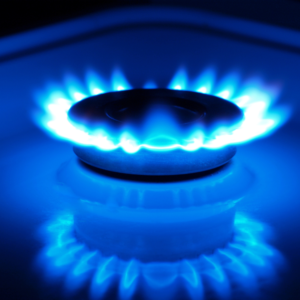Pandemics, politics and a plunging global economy: Some industries might not be able to withstand any one of these assaults on their business. But Pennsylvania’s natural gas producers say they can triangulate against all these pressures and come out of the coronavirus crisis stronger on the other side.
But to all of these problems, throw in one more unexpected point of pressure: overproduction.
“We’ve been a bit of a victim of our own success,” Marcellus Shale Coalition President Dave Spigelmyer told Delaware Valley Journal.
“Unconventional shale development has been such an extraordinary winner from a supply standpoint. Back in 2008, we produced about 180 bcf [billion cubic feet] of natural gas in Pennsylvania,” he said. “Today we’re well north of 6 [trillion cubic feet], producing about 20 percent of America’s natural gas supply out of Pennsylvania alone.”
The supply is strong. Demand, however, is way down due to the pandemic’s impact on the world’s economies and a warmer than usual winter in the U.S. — especially in the Northeast which represents 30 to 35 percent of the nation’s natural gas demand, Spigelmyer estimates.
According to the latest short-term analysis by the U.S. Energy Information Administration, residential consumption of natural gas will be down 5.8 percent from the 2019 average, and commercial consumption will fall by 7.1 percent, “as a result of warm weather and the slowing economy,” the EIA reports.
Demand for oil is also collapsing. Norwegian research firm Rystad Energy estimates crude oil consumption worldwide could fall by 27 million barrels a day in April.
Spigelmyer says gas production in Pennsylvania is down at least five months in a row.
Balancing the supply-and-demand equation became more difficult when a price war between Saudi Arabia and Russia flooded oil markets with even more product, causing a steep price collapse at the exact moment coronavirus fears were beginning to peak in the U.S.
International producers agreed over the weekend to production cuts of about 10 million barrels a day after President Trump was able to broker a deal between many of the international players.
Even with that cutback agreement, however, the risk is with so much oil and gas already on the market at such low prices, some producers may not survive.
“I do know there’s extreme pressure on some of our operators. There’s a very heightened focus to make sure we have our balance sheets in a proper place. There’s no doubt there’s a need for capital in our state to be able to continue to operate and drill,” Spigelmyer said.
A New York Times report from the end of March suggested Pennsylvania drillers had taken on too much debt.
“There are strong signs that this natural-gas shakeout could grind on longer than others,” the Times reported. “And if it does turn into a rout that leads to large layoffs and business closures, Pennsylvania may have to reassess its great shale experiment.”
Other recent reports have highlighted that Pennsylvania’s unemployment rate from the virus scare has been among the highest in the nation. Spigelmyer credits the Cybersecurity and Infrastructure Security Agency’s decision to designate oil and gas workers as “critical” to keeping thousands of people employed when every paycheck is needed during the crisis.
“I believe when this pandemic passes we’ll put Pennsylvanians back to work in record numbers,” Spigelmyer said.
Politically, Pennsylvania gas producers are keeping a close eye on remarks made by former Vice President Joe Biden, long considered a “native son” of the Keystone State and now the presumptive nominee for the Democrats in the 2020 presidential contest.
“No new fracking” he promised, twice, in a televised debate in early March, just before the scope of the pandemic was being realized domestically.
Yet for all the political pressures of the 2020 campaign, Spigelmyer believes the gas industry has an opportunity to tell a completely new story about itself.
“When you take a look at this pandemic, you look at the products that are manufactured through the use of natural gas,” he began.”Let’s go into an emergency room. A ventilator, an IV drip, syringes, masks, gowns, the equipment that’s being used in those facilities are from natural gas.”
“I think natural gas plays an enormous role going forward,” Spigelmyer predicited. “And I think there’s great consumer confidence in natural gas.”

